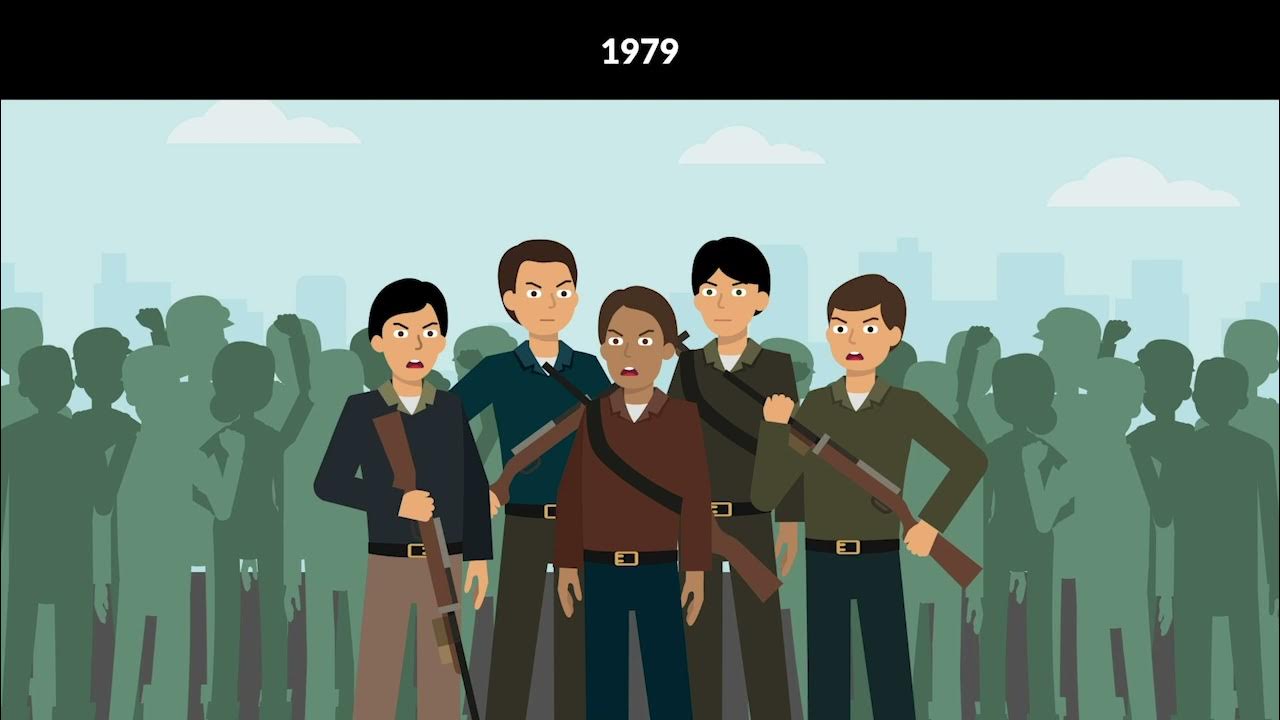2.1 An Introduction to the International Court of Justice
Summary
TLDRThe International Court of Justice (ICJ), often referred to as the World Court, is the principal judicial organ of the United Nations, established in 1946. Comprising 15 judges elected by the UN General Assembly and Security Council, the ICJ settles disputes between states and offers advisory opinions on legal questions to UN bodies. With a history of resolving a wide array of issues, from land and maritime boundaries to environmental protection, the ICJ plays a pivotal role in the peaceful resolution of international conflicts. However, its effectiveness is contingent upon state consent, which both limits its reach and potentially bolsters compliance with its rulings.
Takeaways
- 🌐 The International Court of Justice (ICJ), also known as the World Court, is based in The Hague and is the principal judicial organ of the United Nations.
- 🏛️ Established in 1946, the ICJ is the successor to the Permanent Court of International Justice, which was associated with the League of Nations.
- 📜 The ICJ has jurisdiction over a wide range of disputes, including land and maritime boundaries, use of force, genocide, nuclear weapons, environmental protection, and immunities of high-level government officials.
- 👨⚖️ The ICJ consists of 15 judges elected by the UN General Assembly and the Security Council, serving for nine-year terms with the possibility of re-election.
- 🌍 The judges are elected to represent different geographical regions and principal legal systems of the world, ensuring a diverse bench.
- 🏢 The five permanent members of the UN Security Council—China, France, Russia, the United Kingdom, and the United States—are always represented on the court.
- 👩💼 Judges come from various professional backgrounds, including foreign affairs, diplomacy, academia, and prior service as judges or legal practitioners.
- 🚫 The ICJ can only hear cases where states have consented to its jurisdiction, which limits its ability to settle disputes but may enhance compliance with its rulings.
- 📖 The court has two main functions: to settle disputes between states (contentious cases) and to provide advisory opinions on legal questions to UN bodies.
- ⚖️ Advisory opinions from the ICJ are non-binding but serve as authoritative guidance on international law, in contrast to its binding judgments in contentious cases.
- 📚 The ICJ's history includes prominent advisory proceedings on highly political issues, such as Kosovo's declaration of independence and the Israeli wall.
Q & A
What is the International Court of Justice (ICJ) commonly referred to as?
-The International Court of Justice is commonly referred to as the 'World Court'.
What is the role of the ICJ in the UN system?
-The ICJ serves as the principal judicial organ of the United Nations, responsible for settling legal disputes between states and providing advisory opinions on legal questions to UN bodies.
How was the ICJ established and when did it come into existence?
-The ICJ was established in 1946 according to the UN Charter and is the UN's only permanent court available for states to settle disputes peacefully.
What is the difference between the ICJ and other international courts and tribunals based in The Hague?
-The ICJ is distinct from other courts in The Hague as it is the only permanent UN court with a mandate to settle disputes between states and provide advisory opinions to UN bodies, whereas other courts may focus on specific areas of law or have different jurisdictions.
Who are the judges of the ICJ and how are they appointed?
-The ICJ consists of 15 judges from around the world who are elected by the UN General Assembly and the Security Council. They serve for terms of nine years and may be re-elected.
What are the qualifications and backgrounds of the ICJ judges?
-ICJ judges come from a range of professional backgrounds, including serving as lawyers in ministries of foreign affairs, diplomats, international law professors, or judges at international or domestic courts.
How does the ICJ handle disputes between states?
-The ICJ handles disputes between states through contentious cases, where states must consent to the court's jurisdiction. The process involves written submissions, oral arguments, and ultimately a binding judgment by the court.
What is the significance of the ICJ's advisory proceedings?
-Advisory proceedings allow the ICJ to provide authoritative guidance on legal questions to UN bodies. These opinions, while non-binding, offer valuable insights into international law and can influence the interpretation and application of legal principles.
What is the historical significance of the Peace Palace in relation to the ICJ?
-The Peace Palace in The Hague has been the home of the ICJ since its establishment and previously housed the Permanent Court of International Justice, which was associated with the League of Nations.
How does the ICJ ensure diversity and representation among its judges?
-The ICJ ensures diversity and representation by having judges from different geographical regions and the principal legal systems of the world, including permanent representation from the five permanent members of the UN Security Council.
What is the current gender representation among the ICJ judges?
-As of the script's reference, there are three female judges on the ICJ, which is a relatively small number but an improvement since the first woman joined the court in 1995.
Outlines

此内容仅限付费用户访问。 请升级后访问。
立即升级Mindmap

此内容仅限付费用户访问。 请升级后访问。
立即升级Keywords

此内容仅限付费用户访问。 请升级后访问。
立即升级Highlights

此内容仅限付费用户访问。 请升级后访问。
立即升级Transcripts

此内容仅限付费用户访问。 请升级后访问。
立即升级浏览更多相关视频

EXPLAINER VIDEO | Difference between the ICJ and the ICC

Nicaragua v. United States Case Brief Summary | Law Case Explained

What is the International Court of Justice? The Role and Activities of the ICJ

Sources of international law | LexIcon

United Nations Security Council | International Law explained | Lex Animata by Hesham Elrafei

Cara Cara Penyelesaian Sengketa Internasional secara Damai
5.0 / 5 (0 votes)
